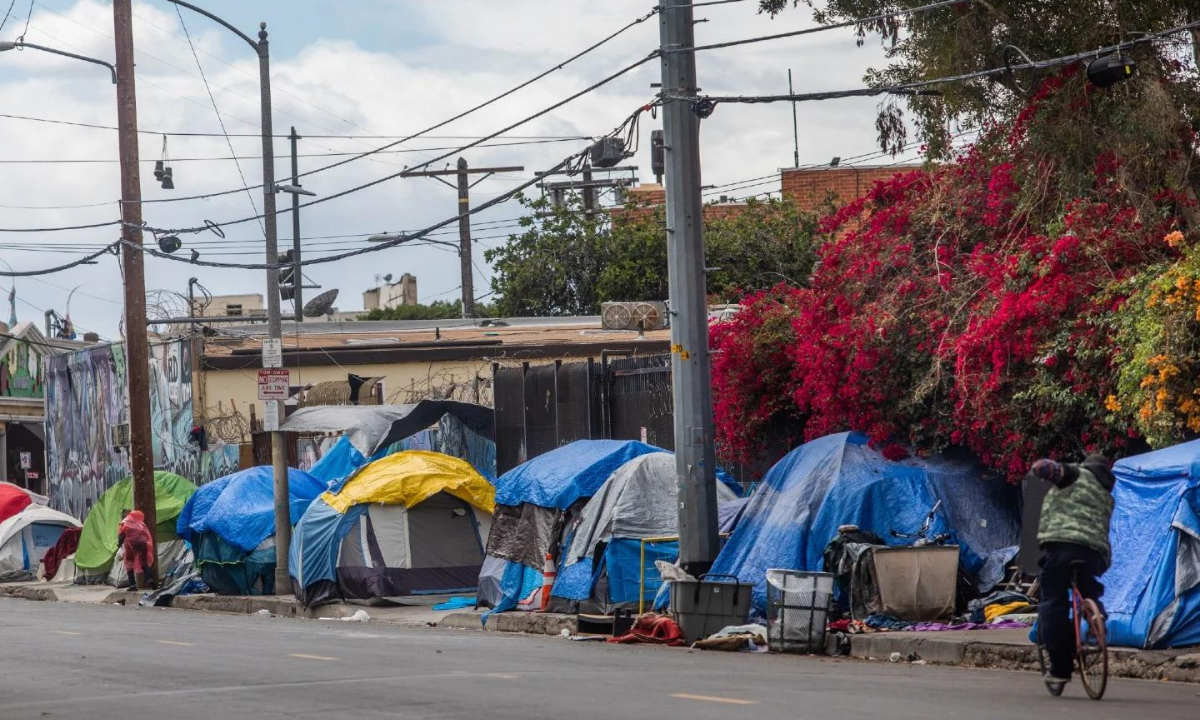Written by T. Logan Dayne
Despite having the fifth largest economy in the world and the nation’s wealthiest neighborhoods, California has done little to help those who have the least among them. As many have noticed, the homelessness epidemic in California has only grown worse. Some believed that the COVID-19 pandemic would show the state its weaknesses so that they could be resolved, but instead, it has only grown worse.
Deaths of unhoused people on the street are rising as encampment communities pop up and grow at beaches, highways, sidewalks, and underpasses, with many of the pandemic programs meant to help the homeless population falling short. As of January 2020, California counted 161,548 unhoused persons, roughly 40% of the nation’s homeless residing in the State. Of those counted 113,660 were classified as “unsheltered”. This would make California home to more than half of all unsheltered people in the Union.
Some cities have responded by cracking down on homelessness but some argue this will only worsen the problem. Many cities have banned camping in certain areas, implemented fines, and have begun breaking down encampments and pushing the unhoused out. Just last month, LA had a large crackdown on its homeless just in time for the Super Bowl, suggested by some as a move to get the homeless out of sight for the tourists. Dawn Toftee, who was living near the stadium when she was forced to move said, “I’m getting old and I don’t want to die on the streets” expressing her concerns about the future and adding that she didn’t believe officials cared about her. The crackdowns are being described as “quick fixes” as city residents begin experiencing compassion fatigue. People are moved but the problem isn’t fixed.
California Gov. Gavin Newsom is pushing a $14 billion investment into homelessness solution, what is being described by some as ‘too little, too late’ as many are already driven away from resources as camps are destroyed and the system is strained as many are at the brink of eviction due to rising costs of living in the state, this all following the ending of rent relief programs and unemployment benefits as a result of the pandemic. The $14 billion would push for the creation of 55,000 housing units, which is roughly $255,500 per housing unit.
Photo Cred: Apu Gomes/AFP via Getty Images




